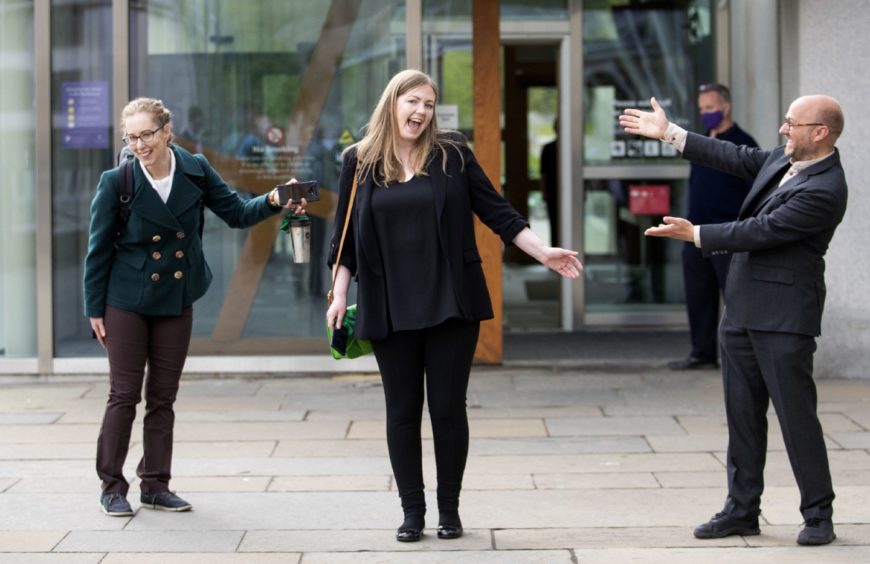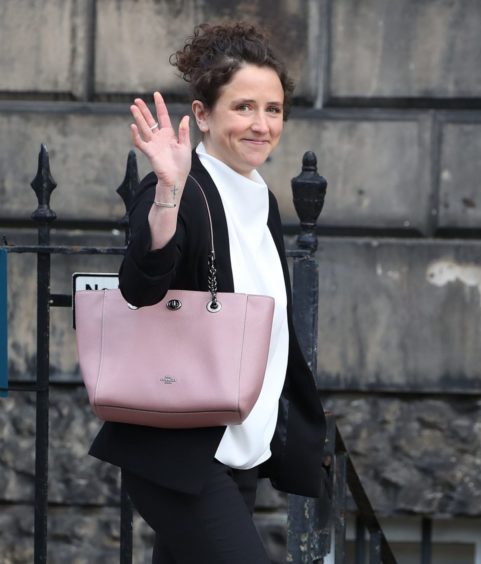Scotland’s vested interests, old and new, seem increasingly anxious about the possibility of the SNP sharing power with the Greens. Every time they complain in the papers it suggests that something transformative could be at hand.
We live in a grotesquely unequal society, with power, money and land hoarded by a few. The pandemic makes those inequalities more obvious every day.
The STUC estimated last year that the 20 richest families in Scotland have more wealth between them than the poorest one and half a million Scots put together – that’s almost a third of the population.
While about 560,000 acres, 3% of Scotland, is community-owned, more than 750,000 acres is owned by companies registered in offshore tax havens.
And around 15% of Scotland, an area almost twice the size of Perthshire, is devoted to heavily subsidised grouse moors – owned by the rich, employment wastelands kept desolate for their pals to shoot docile birds.
Our towns and cities need economic security, better public transport, and affordable housing. Our rural areas too, plus they desperately need a growing population.
We are in a pandemic, a climate crisis, a biodiversity crisis, and a drug death crisis.
Our extractive economy remains mostly shaped by a semi-feudal Westminster, and our Parliament’s moral right even to call a second independence vote is still in doubt.
Some people do very well out of this failing status quo. But they are not on zero-hours contracts, they do not rent damp expensive flats, and they are not wondering what work will be out there when they leave school.
Are SNP ready to get radical?
The SNP have done little to challenge these vested interests. For example, in 2016 they appointed for the first time a Cabinet Secretary with “land reform” in her title – who delivered no land reform. Even unambitious Labour/Liberal Ministers did more.
Historically they claimed we can have the benefits of oil and ignore the price.
Alex Salmond based his independence pitch on doomed fossil fuel economics. In every way he is yesterday’s man as COP26 comes to Glasgow.
So inking a deal between the Greens and the SNP will be tricky, not least given the reluctance of Greens to compromise, but the signs are that the SNP see the need for some more radicalism.
On climate change, Ministers have long hidden behind claims that Scotland has “world-leading targets”, a phrase which makes environmentalists wince.
And then the targets were repeatedly missed.
Even now, the focus remains on emissions in Scotland, not this country’s carbon footprint – so every manufacturing job lost overseas actually helps us meet those targets.
But the mood music is changing. There may be merits, it seems, in the Greens being inside the tent and delivering, not outside and challenging them.
New industries bring new opportunities
On climate that cannot just be more warm words about offshore wind and electric vehicles.
Alongside a rapid and fair transition from oil and gas, it means electrifying heat, transport and industry.
That will need much more onshore wind, solar, tidal, storage, smart grid infrastructure, you name it.
A lot of jobs are ready to go across the country with a new planning regime that takes climate change seriously.
The departure of Fergus Ewing from Cabinet opens up space for the talks and for progress. He was a difficult presence, tending to favour big business and those who see our rural environment as something to be stripped for a quick buck.
His successor Mairi Gougeon is cut from different cloth, someone the Greens could work with.
That could mean a government which understands that thriving ecosystems on land and at sea are better not just for our economy but also for our mental health and the survival of what is distinctive about Scotland.
Deals to be made on transport and homes
A compromise on transport might mean Greens accepting some SNP road-building in exchange for a substantial expansion of public transport.
The Greens won free bus travel for the under-19s through budget talks: that might be expanded.
The eviction ban has been necessary, but it’s not a long-term solution. There’s a swathe of the public ready to back a party (or parties) which can deliver for renters on more secure tenancies and rent controls, and even the right to keep pets.
A transformative programme of council house building and home insulation could pass with Labour support, too, indicating something of a settled will of Parliament.
Most of the SNP’s anti-trans fringe jumped into Salmond’s sinking ship this spring, making progress easier
In January, Nicola Sturgeon declared that transphobia had no place in the SNP.
A deal would require practical action here.
That means ensuring prompt access to the right healthcare, not just the much-misunderstood reform of gender recognition.
Most of the SNP’s anti-trans fringe jumped into Salmond’s sinking ship this spring, making progress easier.
If they can pull it off, the Brexiteers and feudal lairds won’t like it.
Shareholders recklessly exposed to fossil fuel assets will be alarmed.
Red-faced men who like to shout at trans women on social media will be distraught.
Idle landlords will feel a chill wind just as they expose their tenants to drafts every winter.
But their complaints perfectly illustrate why Green Ministers could be the best thing to happen for Scotland’s politics since 1999.
James Mackenzie is a freelance media and public affairs consultant and former head of communications for the Scottish Greens.













